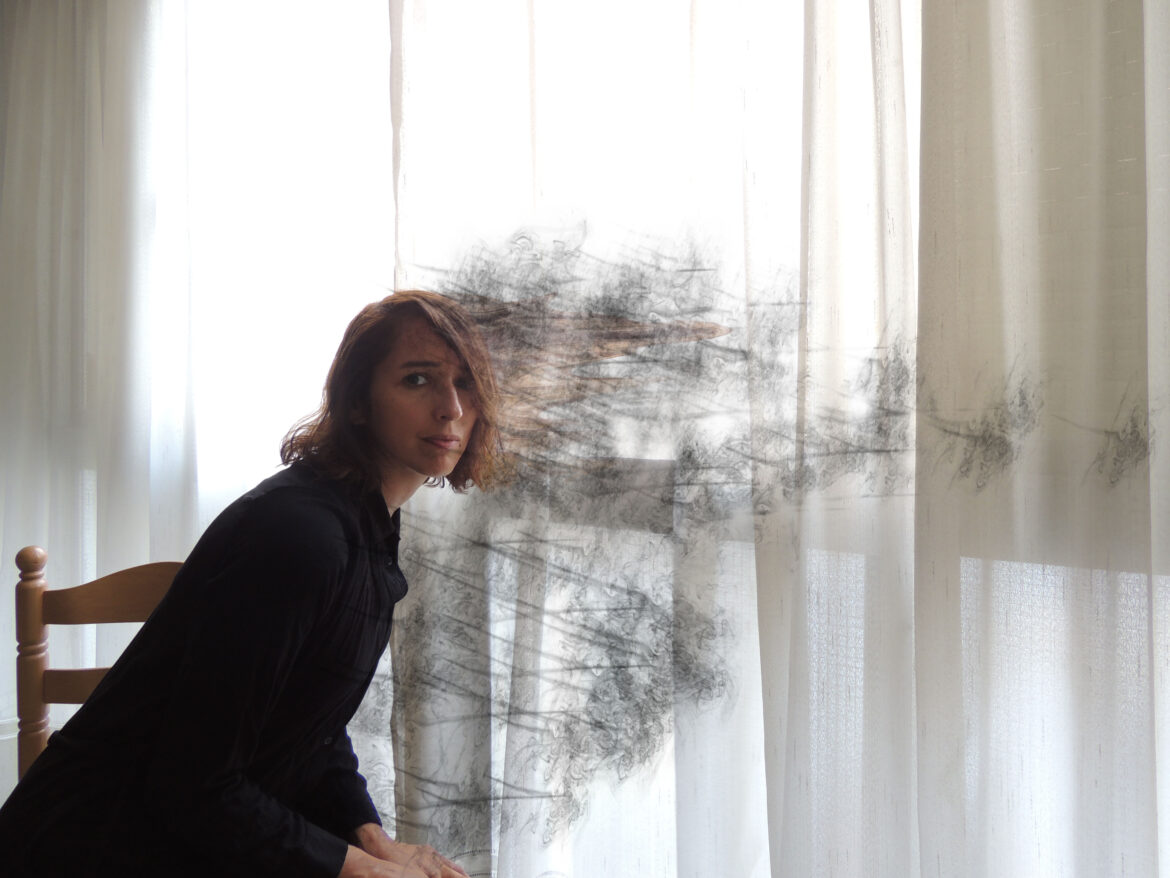
Solange Contreras
Artist
Solange Contreras (1975), is a visual and plastic artist, lover of crafts and mixed media. Her artistic practice is influenced by her experience as a Latin American migrant woman, mother and student at 40, focusing on gender inequality and disconnection with nature. She uses traditional techniques such as sewing and carpentry to rescue ancestral thinking, questioning the neoliberal model through the value of time and dedication to materials.
exposicion
Urbano vegetal
Winner of the call “Thinking the city”, Solange Contreras presents at El Invernadero “Urbano vegetal”, an exhibition that reimagines the urban green infrastructure as an artistic medium where to question the rigid boundaries between the human and the natural. His three-dimensional pieces function as hybrid landscapes where tree branches and chair legs intertwine, braids made of recycled rubber and cotton, ceramics that insert animal pieces, warps woven with plastic and wicker… Each work is born from the combination of plant fragments and manufactured waste found at random, generating creatures that resignify matter and question its original meanings.
INVERNADERO THE SIBARIST
San Lorenzo, 11
exposicion
Thinking the city
The call “Pensar la Ciudad” (Thinking the City) called on emerging artists to reflect and dialogue on the contemporary city through their work, offering unique perspectives on their real experiences, research and desires, from a critical awareness. The initiative sought to give voice to visions that offered a new reading of urban landscapes and societies.
We have had an exceptional jury:
asun rodríguez montejano. Comisaria
Elba Benítez. Galería Elba Benítez
Carlos Garaicoa. Artista
Javier Aparicio. Galería El Chico
Paco de Blas. Gestor Cultural
Carlos Alvarez. Editor. Piece with Artist
Silvia Hengstenberg. ART U READY y The Sibarist
INVERNADERO THE SIBARIST
San Lorenzo, 11
Throughout his career, he has participated in several group exhibitions, highlighting his collaboration with the Asociación UCM Lanzarte, in exhibitions such as ‘Autenticidad’ (Museo Julio Escobar, Los Molinos, 2020), ‘Inquietud’ (Centro Cultural Alfredo Kraus, Madrid, 2021), among others. He received the grant to participate in the residency at CIAN Fabero, León, sponsored by the Universidad Complutense de Madrid or the grant for the Artistic Residency at Kárstica de la cañada del Hoyo called ‘Gestos Reparativos’ funded by the Museo Neomudéjar.
The project ‘Plant Infrastructure’ underlines the importance of recognising our cohabitation in an integral ecosystem, highlighting the etymology of ‘human’ (derived from ‘humus’) to illustrate our connection to the earth and the regeneration of life. It explores how trees in urban environments improve air quality, reduce heat and have positive social effects such as stress reduction. However, current urbanisation limits the space needed for trees to thrive, often degrading their environment. The project advocates for harmonious coexistence and the valorisation of marginalised plants that favour diversity in urban environments.